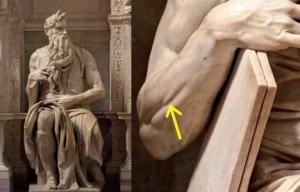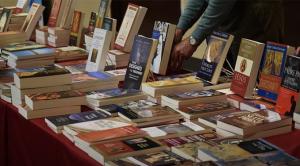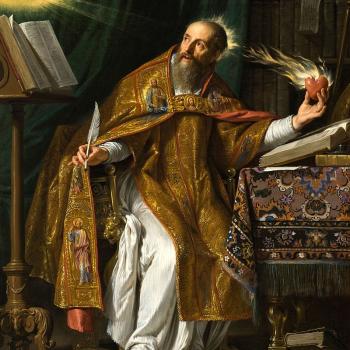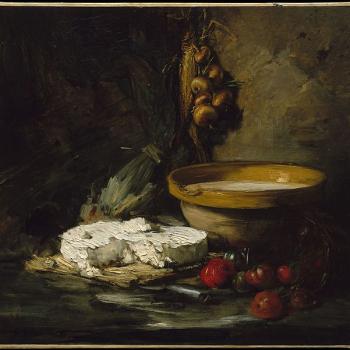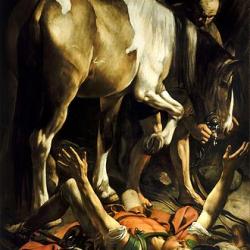Back in the last millennium, St. Pope John Paul 2 crafted his letter to artists.
None can sense more deeply than you artists, ingenious creators of beauty that you are, something of the pathos with which God at the dawn of creation looked upon the work of his hands. A glimmer of that feeling has shone so often in your eyes when—like the artists of every age—captivated by the hidden power of sounds and words, colours and shapes, you have admired the work of your inspiration, sensing in it some echo of the mystery of creation with which God, the sole creator of all things, has wished in some way to associate you.-Letter to Artists, (April 4, 1999) | John Paul II (vatican.va)
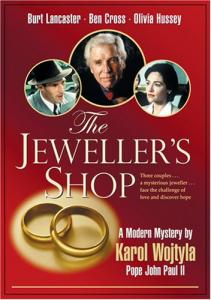
Tolkien expresses the idea that we like to create things because we were created in the image and likeness of God. When you open the Bible to the first page, the first words you read are “In the beginning, God created”. We serve a creator God, who formed the heavens, the earth, the stars, the oceans, the birds and beasts, men and women, and so much more. When He made man, he created him to be in the image of God. So it stands to reason that, because God Himself enjoyed creating things, it is perfectly normal and natural for mankind to enjoy creating things. Tolkien termed this as sub-creation, because man cannot create something out of nothing like God, but rather can take things and form them into something new. This was, in some ways, Tolkien’s way also of defending his decision to write fantasy stories rather than something that Oxford might find more worthwhile, such as literary fiction.-Tolkien on Sub-Creation | Author David Wiley (wordpress.com)
A fifteenth-century cloistered nun who lived and died in relative obscurity doesn’t seem the most obvious choice to be Patron Saint of Artists. She continued in her artistic pursuits, playing the viola (even on her deathbed), painting religious pictures (her painting of St. Ursula hangs today in a gallery in Venice), copying out and illuminating her breviary (once belonging to Pius IX and now on display at Oxford), and writing spiritual guides and poetry. St. Catherine of Bologna, Patron Saint of the Arts | Loyola Press

Madonna of the Peach, by St. Catherine of Bologna
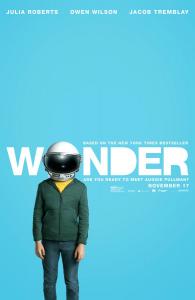
The very first creature in the entire history of planet earth to bury its dead was man. There seems to be no conception of anything like a notion of an afterlife before us. But there also appears to be no conception of anything like art, science or philosophy either. Yet nobody thinks that discoveries and creativity in those other fields is somehow discredited by their newness on the cosmic stage. So the notion that discoveries in theology somehow make the whole thing ridiculous is absurd. All such discoveries demonstrate is that with the appearance of man, a creature exists that, for the first time, demonstrates a power to abstract that is orders of magnitude different from anything that came before. Unsurprisingly, ancient Jews noticed the astonishing gulf between man and the rest of creation and saw it as a link to the divine. So, for that matter, did every other theistic tradition. The argument “Deep Time exists, therefore there is no God” is like saying, “Space is really big, so there is no God.” It’s dumb.-Mark Shea on Facebook
#Moses. Michelangelo’s marble sculpture was completed in 1513–15. One of many details of the masterpiece is a very small forearm muscle that contracts only when lifting the pinky finger, otherwise it remains unseen. Moses is lifting it, the tiny muscle is contracted, and Michelangelo captured it. Brilliant. DrSteven Smith on Facebook
We should not be so astonished by the wickedness of mankind that we forget to be astonished by its goodness as well. We bear the image of God in us, which I believe is ultimately more inherent to our identity than the rot of sin.-Avellina Balestri
One of my creative talents is to find and assemble well-written nuggets of wisdom in the form of short paragraphs and quotes into a coherent narrative so that people can glance through it and come out with thoughts they can chew on and digest into their souls. This is one of these posts. I hope these thoughts about creativity inspire and fuel your own creativity.
Ever notice that sometimes disturbing our creative stuff can be difficult.
Facebook friend Mike muses: “Seldom do we ever hear parents express the wish that their children grow up to be artists, novelists, musicians, or sculptors … Makes me wonder what the world would look like if Creativity was encouraged as much as memorizing your times tables.”My thought: What we need first of all is not more artists, but a better audience: not more encouraging of creativity, but more appreciation of beauty. The reason parents don’t encourage their children to become artists is that it doesn’t pay, and the reason it doesn’t pay is that there isn’t an audience.-Deacon Steven D. Greydanus

THIS GUY DOESN’T UNDERSTAND THE OXFORD COMMA.
From a comment at Facebook: “I don’t love the Oxford comma. I use it when not using it would be awkward, but otherwise it’s a useless pause.”His problem is that he doesn’t understand what commas are for. They are NOT indicators of pauses. They don’t show you where to take a breath.They’re logical separators. (I mean that in terms of the science of logic.) Like other punctuation, they indicate how parts of a sentence are related to one another.They aren’t stage directions. (“Pause here, take a deep breath, and then continue to read dramatically.”)
Without an Oxford comma, you stand a good chance of making an appositive where there shouldn’t be one. But you won’t understand that if you think commas are breathing marks.
Karl Keating on Facebook .
But I don’t want your drama
If you really wanna
Leave out that Oxford comma
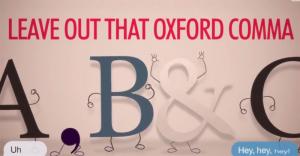
Every-week I try to find as much news about the latest happenings in our world. I try to keep up with all my favorite authors, movie makers, singers, political figures, public figures, friends, acquaintances, enemies, news makers and family as time and energy allows for me to take it all it. But sometimes it is impossible to keep up with everything. That is why this advice from Mark Shea is a good reminder for us as we run around our social networks.
Note to the young: Before you know it, you will read the first of a steady stream of headlines for the rest of your life announcing that a film star/musician/pop culture figure known to all the world except you has married/gotten pregnant by/divorced another film star/musician/pop culture figure known to all the world but you and you will feel the cold hand of Age on your shoulder for the first time.
Take that hand and shake it. As time goes on, it will only happen more. The world is a big, busy place and none of us can keep up with it all. You aren’t becoming an out of touch old grump. You are just maxing out your brain with other interests. Don’t be a jerk to those who care about those people you never heard of. Don’t boast that your ignorance proves you are not a shallow person. Just accept that fact that there is a lot of stuff going on and you can’t track it all because nobody can.-Mark Shea on July 26 at 11:21 AM
I think everyone should write a memoir, if they can. I always enjoy reading people’s stories, even if they seem to them very unremarkable. A memoir is just a recollection, the way we remember things.My problem is how little I recollect, and how much I fail to remember. I’m certain that during some the most significant events of my life I was distracted by the way leaves shimmered in the breeze, or by the frost patterns on a window, or similar things. This also describes my experience of everything in my life that might be called “formal education”.
I’m envious of those people I know who have exacting memories of events; who was there (and who wasn’t), what they were wearing, what was said and by whom. These things are foggy for me. I remember atmospheres. The general sense of things, the �������, I guess. Timothy Jones on Facebook
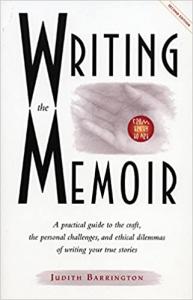
The experience Timothy Jones describes was a sign of his calling to paint, I think. It’s a vocational marker.
Such things tell you how your mind is wired and what it will do when it develops, if you *can* develop it. That is, have the leisure, education, support, and drive to work at it over time, possibly for years without much success. If he had remembered the details better, he probably wouldn’t be as good a painter.I had a similar experience. When I read argumentative pieces, I tended (and tend) to notice how the writer writes and how he argues more than the argument he makes. It’s the mind that interests me, and the writing or rhetoric as an expression of that mind, more than the mind’s products.Which is very useful to me as an editor, more than as a writer. In the kind of deep, reconstructive editing I often do, I have to suss out what the writer is trying to say and help him say it, or say it for him, in his own way. To do that, I have to think and see with his mind. I may have had to tear down the house he built, but I had to help him rebuild or rebuild myself the house he wanted to build if he knew more about building.
I used to work with a very intrusive editor, who rewrote more than edited, but also got bored some ways into an article. I could tell you almost to the word where stopped editing, because the writing changed from his mind back to the writer’s. David Mills23h

While not everyone can be a great artist of some sort; while not everybody can enjoy every pleasure God has gifted to mankind, everybody can enjoy well thought out written material.
Everyone has hobbies. Everyone thinks, “Mine is great.” Well, some are only for this one and some are for a few of us. Some are for many. And some should be for all. Indeed, “hobby” can be an inapt word for certain likes.
Only some people will be “bookies”. But all should acquire the ability to enjoy a good book often and appreciate a great book at least from time to time, if not more frequently.The achievements of civilization and human development are such that while not all may humanly experience the pleasures of sex and not all may know the blessings of being parents, all should know the joys of reading and sharing what is read.
It is not for little that the divine Word, having become man, nevertheless chose as well to inspired the written Word and to have it collected and preserved for all time and for all of us.
Mark BrumleyAugust 18 at 12:11 AM
I – and others – have often reflected on the question of What Happened to Catholic Writing after Vatican II. Not to say there’s been nothing of quality produced – not at all – but there is definitely not a “flourishing” as we saw in Europe and the United States before Vatican II. What’s up with that? I’ve often thought that a huge reason was that very concentration of post-Conciliar Catholic cultural energy on intra-Catholic conflicts and issues.
When you know that the Mass or Church teaching isn’t up for grabs, that, well, no your opinion on this or that doesn’t really matter in the big picture, you shrug, and maybe you write some essays or bring your doubts or questions into your art in some fashion, but since you have no power to really change anything, it frees you to concentrate on the art – and I don’t mean this even just for individuals, but as I said, for Catholic culture in general. Amy Welborn, The Emerging Laity August 19, 2021The Emerging Laity | Charlotte was Both (wordpress.com)
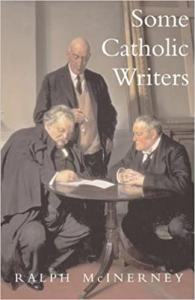
Here is a heartfelt plea to future writers.
Readers and future writers, please, please, tell stories of heroes and heroines who work past and/or overcome their faults. Please tell stories that are optimistic, that give readers/viewers hope for themselves and the future. Millionaires come and go, but artists who give others even an hour’s joy and a renewed sense of hope – their legacy endures beyond their lifetimes.-Caroline Furlong

Least I be accused of making this post too long by my loving wife, here is one final thought on creativity.
And here are a few FB groups where your Catholic Faith and Creativity can flow together.
Fellowship & Fairydust | Facebook
Fellowship & Fairydust (F&F) is a literary magazine inspiring faith and creativity and exploring the arts through a spiritual lens. We follow in the footsteps of J.R.R. Tolkien, C.S. Lewis, G.K. Chesterton, George MacDonald and others who combined their Christian sacramental imagination with a love of storytelling. We also branch out into other storytelling traditions from around the world to cultivate intercultural and interreligious understanding. We accept submissions of fiction, non-fiction, poetry and prose, as well as artwork and photography
The Best of Everything: A Banquet to Which Everyone is Invited. | Facebook
Art, Sports, Film , Literature, Gastronomy , Music (all kinds),Science, Classic TV- everything EXCEPT political and theological controversy and polemics
Catholic Sci-Fi/Fantasy Writer Geeks | Facebook



